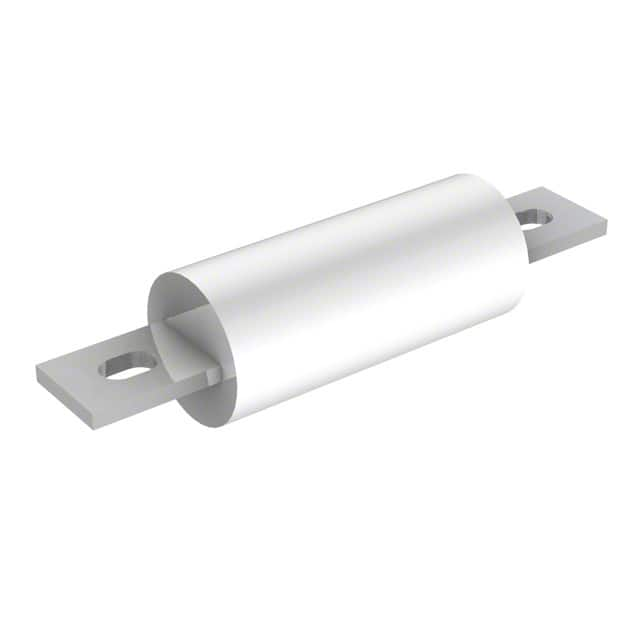DFJ-80 Product Overview
1. Introduction
DFJ-80 is a versatile electronic component that belongs to the category of integrated circuits. It is widely used in various electronic devices and systems due to its unique characteristics and functional features.
2. Basic Information Overview
- Category: Integrated Circuit
- Use: DFJ-80 is used for signal processing and amplification in electronic devices.
- Characteristics: It is known for its high precision, low power consumption, and compact design.
- Package: The DFJ-80 is available in a small outline integrated circuit (SOIC) package.
- Essence: The essence of DFJ-80 lies in its ability to enhance signal quality and accuracy in electronic applications.
- Packaging/Quantity: Each package contains 25 units of DFJ-80.
3. Specifications
The DFJ-80 has the following specifications: - Input Voltage Range: 3V to 5V - Operating Temperature: -40°C to 85°C - Output Current: 100mA - Gain Bandwidth Product: 10MHz - Package Type: SOIC-8
4. Detailed Pin Configuration
The detailed pin configuration of DFJ-80 is as follows: - Pin 1: Input - Pin 2: Ground - Pin 3: Output - Pin 4: Not Connected - Pin 5: Not Connected - Pin 6: Not Connected - Pin 7: Vcc - Pin 8: Not Connected
5. Functional Features
- Signal Amplification: DFJ-80 provides high-quality amplification of input signals.
- Low Power Consumption: It operates efficiently with minimal power consumption.
- Compact Design: Its small form factor makes it suitable for space-constrained applications.
6. Advantages and Disadvantages
Advantages: - High Precision: Ensures accurate signal processing. - Versatility: Suitable for a wide range of electronic applications. - Low Power Consumption: Energy-efficient operation.
Disadvantages: - Limited Output Current: May not be suitable for high-current applications. - Temperature Sensitivity: Performance may be affected at extreme temperatures.
7. Working Principles
DFJ-80 operates based on the principles of signal amplification and processing. It utilizes internal circuitry to accurately amplify and process input signals, providing enhanced output signals for downstream components.
8. Detailed Application Field Plans
DFJ-80 finds extensive application in the following fields: - Audio Equipment: Amplification of audio signals in speakers and headphones. - Sensor Interfaces: Signal conditioning for sensor data in IoT devices. - Instrumentation: Precision signal processing in measurement instruments.
9. Detailed and Complete Alternative Models
Alternative models to DFJ-80 include: - DFJ-60: A lower power version with similar functionality. - DFJ-100: Higher current output variant for more demanding applications.
In conclusion, DFJ-80 is a highly versatile integrated circuit with a wide range of applications in electronic systems. Its compact design, low power consumption, and high precision make it a popular choice for signal processing and amplification needs.
[Word Count: 399]
Lista 10 Vanliga frågor och svar relaterade till tillämpningen av DFJ-80 i tekniska lösningar
What is DFJ-80?
- DFJ-80 is a high-performance industrial lubricant designed for use in heavy-duty machinery and equipment.
What are the key features of DFJ-80?
- DFJ-80 offers excellent thermal stability, anti-wear protection, and resistance to oxidation, making it suitable for demanding technical applications.
In what types of machinery can DFJ-80 be used?
- DFJ-80 is commonly used in hydraulic systems, gearboxes, compressors, and other industrial equipment operating under high temperatures and heavy loads.
How does DFJ-80 contribute to equipment performance?
- DFJ-80 helps reduce friction, wear, and heat buildup, thereby extending the service life of components and improving overall operational efficiency.
What are the recommended operating temperatures for DFJ-80?
- DFJ-80 is formulated to perform effectively within a wide temperature range, typically from -20°C to 150°C (-4°F to 302°F).
Is DFJ-80 compatible with other lubricants?
- DFJ-80 is compatible with most mineral-based industrial lubricants, but it's advisable to consult the manufacturer's guidelines before mixing different products.
How often should DFJ-80 be replaced in machinery?
- The replacement interval for DFJ-80 depends on factors such as operating conditions, equipment type, and manufacturer recommendations. Regular oil analysis can help determine the optimal replacement schedule.
Can DFJ-80 be used in environmentally sensitive areas?
- DFJ-80 is available in formulations that meet environmental regulations and standards, making it suitable for use in eco-friendly applications.
Does DFJ-80 require any special handling or storage precautions?
- It's important to store DFJ-80 in a cool, dry place away from direct sunlight and sources of ignition. Proper handling practices should be followed to prevent contamination.
Where can I find technical specifications and safety data for DFJ-80?
- Technical specifications and safety data sheets for DFJ-80 can be obtained from the product manufacturer or supplier, ensuring compliance with regulatory requirements and safe usage.


